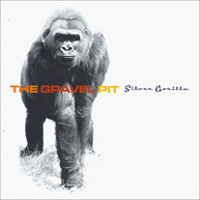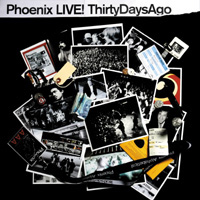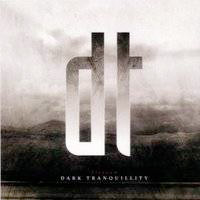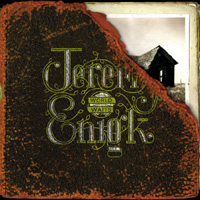 Jeremy Enigk
Jeremy Enigk
World Waits (Lewis Hollow)
An interview with Jeremy Enigk
By Tim Den
There’s no mistaking that voice, that blessed sense of melodic direction, that divine ability to evoke the most visceral emotional reaction out of listeners. Hard to believe that it’s been 10 years since Jeremy Enigk last bestowed upon us his unparalleled genius. But during that entire time, as he regrouped Sunny Day Real Estate and put out two studio albums (plus a live album on Sub Pop), started The Fire Theft and released an excellent debut, and scored the film The United States of Leland, did any of his disciples forget the master’s brilliant touch? How could we, when everything this man penned became life-altering experiences? But I think it’s safe to say that his most loyal fans always desired a follow-up to his one and only solo album, ’96’s Return of the Frog Queen. And so, it is with this air of anticipation that arrives World Waits, promising the kind of George Martin-esque orchestration that its predecessor embodied, only injected with 21st century modernity. Well, how is it?
Do you really have to ask? From the first note, it’s obvious that World Waits is going to have the same historical weight of Return of the Frog Queen. “A New Beginning” floats in gently with a bending guitar melody and vocalist Jen Wood’s ghostly whispers, before erupting into bombastic strings and symphonic orchestration. And though it’s daring of Enigk to open his new album with another singer’s voice, the tone is set. From there on, only the most intense emotional/spiritual listening experience awaits. You know the kind: Soaring melodies that reach the heavens, sorrow that soaks through your marrow, nonstop goosebumps for an entire 36 minutes. Every sound out of Enigk’s mouth hits some sort of an aural g-spot, but hasn’t he always? “Been Here Before,” “Cannons,” and especially the title track offer the type of soul-purging rock that later Sunny Day Real Estate perfected, while “Damien Dreams” and “Wayward Love” follow more in the vein of Return of the Frog Queen‘s strangely subdued numbers such as “Lewis Hollow” and “Lizard.” But to think that World Waits is an extension of Return of the Frog Queen would be erroneous: This is Jeremy Enigk in 2006, much more interested in straightforward song structure, digestible hooks, and a “so simple it should sound more difficult” pursuit of intimate connection with listeners. The fact that all of these attributes are positive is our gain, because World Waits feels like the most rewarding of listening experiences: A close and dear friend’s companionship, the warmth of love’s embrace, the unexpected strength in the face of tragedy. It is a near-perfect soundtrack to every facet of your life, be it triumph or sadness or introversion.
Jeremy Enigk can do no wrong. And not that we needed reminding, given his back catalog, but World Waits further cements his reign as an absolute deity in the realm of songwriting. The world would surely wait another century for an album of this quality.
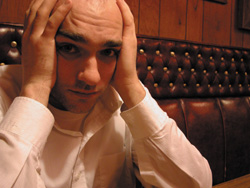 I’ve been a fan of yours for over 10 years. Your fans, myself included, are incredibly devoted to your every move. Some have even started to describe you in terms of “legacy.” How do you feel about all the praise?
I’ve been a fan of yours for over 10 years. Your fans, myself included, are incredibly devoted to your every move. Some have even started to describe you in terms of “legacy.” How do you feel about all the praise?
Wow, well, right now it feels pretty good hearing you say all that! (laughs) I do what I do because of my fans. Because of their devotion, I’m allowed to do what I love, so I am eternally grateful. As far as words like “legacy” go, I don’t think too much about it.
When you first started playing music, did you think you would end up being described in such celebratory terms?
I was young when I started, and when you’re young, you don’t think much about anything but playing. I was just happy expressing myself. When someone says that I helped invent a genre, it’s a little strange.
That was my next question: How do you feel about the association between Sunny Day Real Estate and the whole emo genre?
On the one hand, it’s flattering to think that someone attributes an entire genre to you. In the past, I didn’t think too much about it. People say “founders of emo” or whatever, but we never paid much attention or cared. We were just doing our own thing. However, as I get older, it’s kinda of like “enough already.” (laughs) I’m sick of it. In every article/review/interview, it keeps coming up. From what I’ve heard of “emo,” I don’t think it sounds anything like what Sunny Day Real Estate were doing. I’m just a songwriter: I’m not an entire genre. I understand that people have to use terms and labels to describe music to one another, but maybe I’ve heard it about myself one too many times. (laughs)
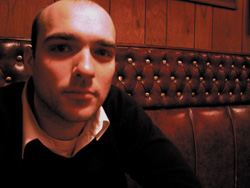 Then again, if it’s what I go down in history for, I have no qualms with it. I can bitch and moan all I want, but in the end, it’s not up to me.
Then again, if it’s what I go down in history for, I have no qualms with it. I can bitch and moan all I want, but in the end, it’s not up to me.
What motivated you to do another solo album after 10 years?
It was time. It’d been 10 years, and I ‘d just gotten dropped from several labels, so it seemed like a good time to be a little selfish. You know how everything snowballs: You start writing one song, it builds into an album, a tour, more tours… So right now, I’m doing the solo thing because it feels like it’s time.
By labels you mean your solo contract from Sub Pop, etc.?
Yeah, and The Fire Theft’s contract with Rykodisc.
What’s the plan with The Fire Theft after all the solo obligations?
We’ve been talking about becoming a recording band: Only record and not tour.
Really?
For now, yeah, but I have a feeling that once we start writing songs and put an album out, we’ll want to play live. But tentatively, William (Goldsmith, drummer) and I have settled on the idea that we will just write and record. Get back to why we started playing together in the first place: To make music.
By the end of The Fire Theft’s last touring cycle, we felt that we’d become very restricted by the machine known as the music business. There were all these business decisions and expectations to go out and conquer the world that we were not comfortable with. It made us forget why we were playing in the first place.
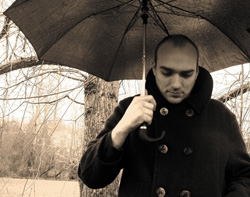 It’s interesting that you say you felt such pressure with The Fire Theft instead of with Sunny Day Real Estate.
It’s interesting that you say you felt such pressure with The Fire Theft instead of with Sunny Day Real Estate.
Oh, we felt it with Sunny Day Real Estate too, which is one of the reasons why that band broke up. We formed The Fire Theft thinking it was going to be different, but it ended up being a part of the same system again.
The music business really sucked the life out of us (while we were in Sunny Day Real Estate). We felt like we were fulfilling obligations. It felt like beating a dead horse.
From a purely financial standpoint, will you be able to support yourselves without touring?
Hopefully, the record sales will sustain us. I’ll be putting out The Fire Theft’s next album on Lewis Hollow, which means we’ll get 75% of the profits instead of, say, 15%. I’m hoping that it makes a difference. And personally, I’ll still have my solo stuff, and hopefully more movie-scoring opportunities.
I remember seeing Sunny Day Real Estate tour behind The Rising Tide and seeing signs for “please do not smoke” in the clubs.
Dan’s (Hoerner, Sunny Day Real Estate guitarist/backup vocalist) wife was pregnant and on tour with us doing merch. It had nothing to do with us rebelling against music venues or being anti-smoking. I myself actually smoke. Dan didn’t – he hated it – but there was just no way we were gonna subject his wife to all that smoke for weeks.
Speaking of Dan, I’m sure a lot of people are wondering what exactly happened when Sunny Day Real Estate broke up and three of its original members formed a new band without the fourth. Would you care to elaborate a little on what happened with Dan?
Well, it was about starting over, and I think the working environment was a little old for everybody. When calls were made and everyone chatted, it was relief on both ends of the phone. I think he was happy about it. Obviously I can’t go into the specific personal details, but we parted very amicably. The band was just an old pair of shoes that no one wanted anymore.
Do you keep in touch with him?
Yeah, but I haven’t spoken to him in a while. I heard he’s starting a business with a mutual friend of ours, so there might be some collaboration, business-wise, in the future, but that remains to be seen.
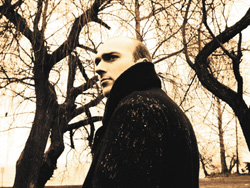 It’s pretty well-documented that you guys disapproved of the live album that Sub Pop put out.
It’s pretty well-documented that you guys disapproved of the live album that Sub Pop put out.
I never wanted to do a live album, but it was one of those business situations where I was still under contract with Sub Pop, which meant that anything I did, be it Sunny Day Real Estate or something else, they owned it (this was around when we went to Time Bomb for the release of The Rising Tide). So to fulfill contractual obligations, both parties decided to release the live album. We agreed to the decision, so there should be no blaming Sub Pop. Jonathan from Sub Pop is an old, dear friend of mine, and I have nothing but good things to say about him.
How was playing Lollapalooza?
I sat in the sun for two hours and got really burnt. (laughs) It was beautiful, actually. I played the set facing the Chicago skyline. There were beautiful women everywhere, free booze… (laughs)
But how did you feel playing such a huge fest in the middle of the afternoon?
I’m not sure if my music is that well-suited to a 2 pm slot on a bright afternoon. There was a crowd there, but it was mostly scattered applauses kind of a thing. I understand that the new record hadn’t come out yet and most people don’t know who I am, so it’s okay. I hope to be touring a lot, so there’s time for people to grow acquainted with the material.
Do you enjoy touring?
I never enjoyed touring until now. I don’t know, something just clicked. In the past, I was worried about losing my identity on the road, or not getting enough sleep, but all of a sudden, I feel great and love touring. This is the first tour I’ve ever done where I don’t get the pre-show jitters. Now I just go out and have fun. It’s great!
It’s funny to hear you all excited, especially when thinking back on how Sunny Day Real Estate turned away interviews, barely toured, and refused to take publicity photos in the beginning.
When we started, we were young punks who believed in D.I.Y., Fugazi ethics, and all that. We felt that nothing else mattered but the music; that the music should speak for itself. We thought interviews/photos had nothing to do with the music. Of course, as this attitude carried on, it almost became funny that we still weren’t doing interviews, playing California, all that ridiculous business. But that became meaningless after a while. We had no reason to keep doing it. Now, I like doing interviews and touring because I’ve lived my entire life in the same city (Seattle), and I want to be out and meet everybody.
(www.lewishollow.com)

